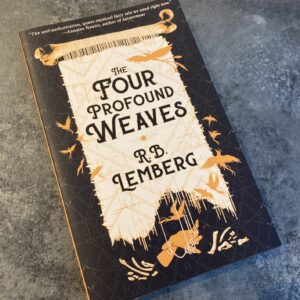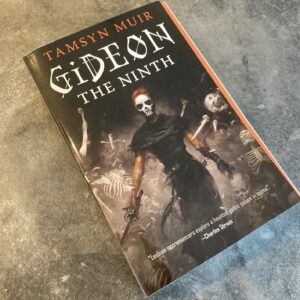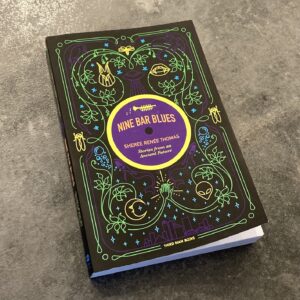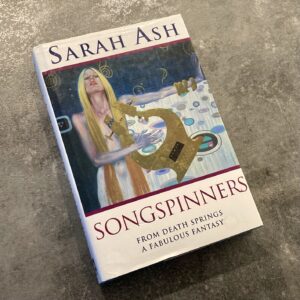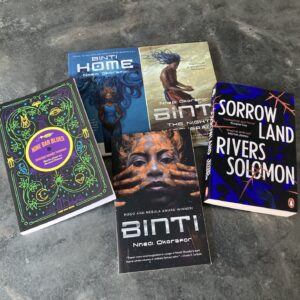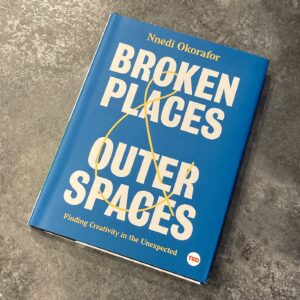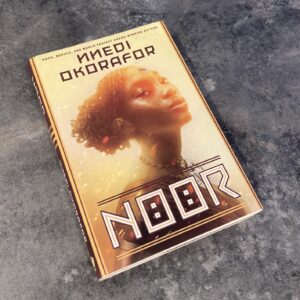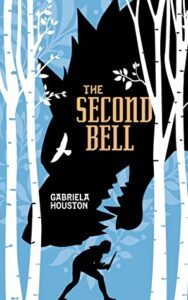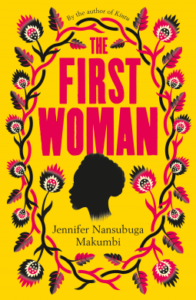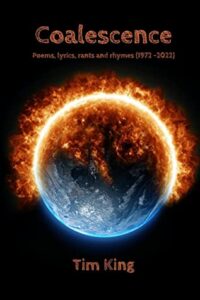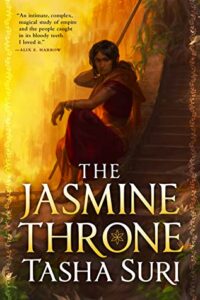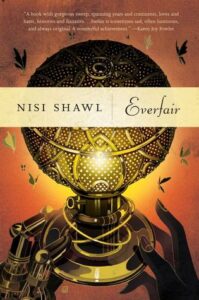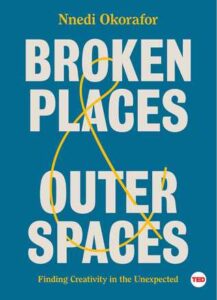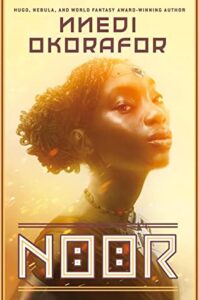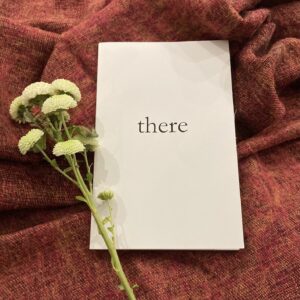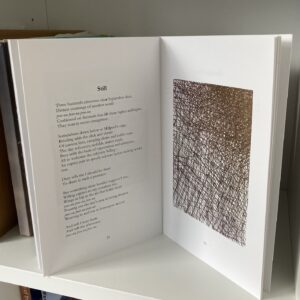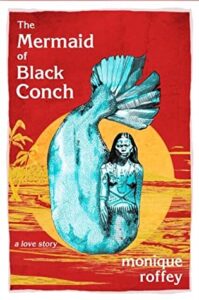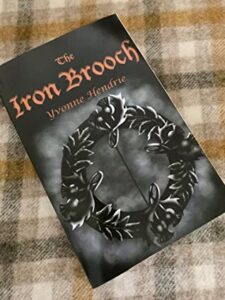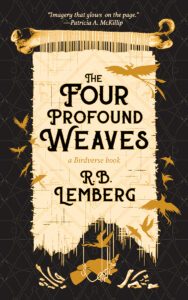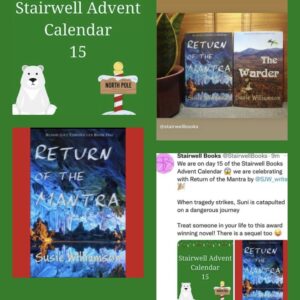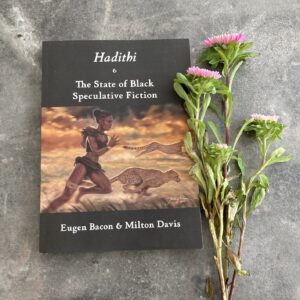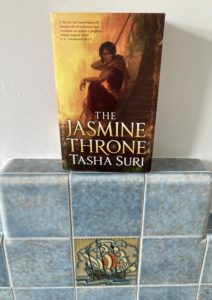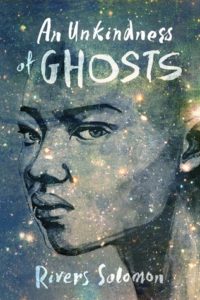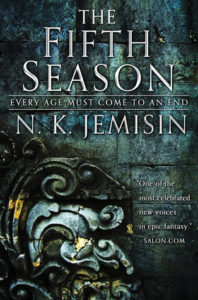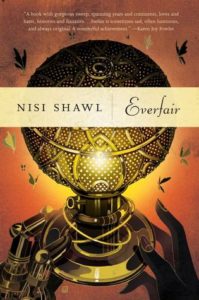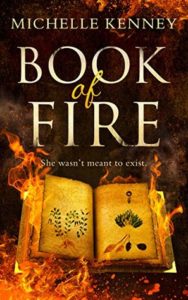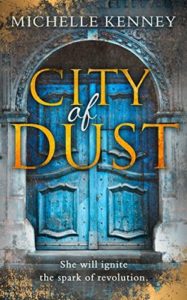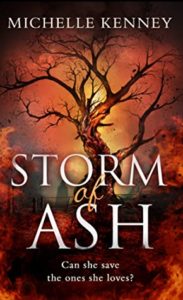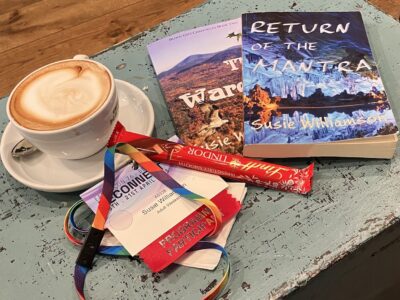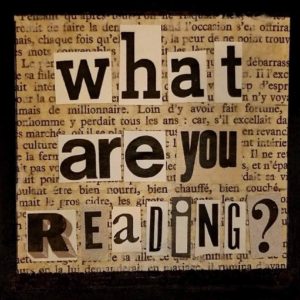
Spring in the UK, from heavy rain to glorious sunshine, fading daffodils to colourful tulips; the unpredictability of changing seasons brings its own kind of magic. And so I’m stopping by with two recommendations of stories with magic in recognisable worlds.
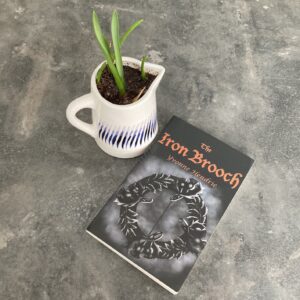
The Iron Brooch by Yvonne Hendrie
In 1940s London, seventeen-year-old Brigid chooses an iron brooch, a family trinket, as her ‘something old’ to wear on her wedding day. But the heirloom is more mysterious than she could have imagined: through it she receives bird-like visions of Scotland’s Doon Hill in Aberfoyle, the place of her father’s homeland. Pregnancy forces Brigid to leave her family home and head to London to find lodgings, but the visions grow stronger, leading Brigid right out of 1940s time, for a while.
So begins the magical dual-timeline novel, connecting 1940s London inextricably with 1690s Scotland, and the story of Robert Kirk, searching for his lost love in realms beyond this world. It is around the time of the festival of Beltane when the veil grows thin, revealing fae sightings and dangerous magic from a wholly mysterious race. Robert’s heartfelt search leads to research and a resulting manuscript, ‘The Secret Commonwealth of Elves, Fauns and Fairies,’ by Robert Kirk, a book Brigid grew up reading.
I was absorbed by Brigid’s story from the first, moved by her struggles of grief and pregnancy, and rooting for her as she is forced to navigate the world alone. And as she increasingly sees through the veil, I was utterly captivated by the depth into which the author delves into the preternatural, while expertly grounding us into the real. It is a truly spellbinding tale so tightly woven, that for a moment at least, you question the flickering haze in the corner of your eye.
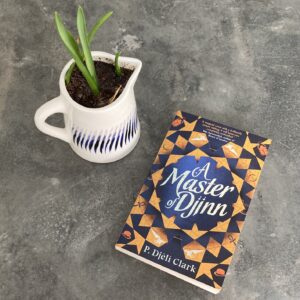
A Master of Djinn by P.Djeli Clark
The year is 1912, and Lord Worthington oversees the gathering of a secret brotherhood, established to uncover the wisdom of Al-Jahiz, the disappeared Soudanese mystic. The world sits at a precipice, man’s ability to create has exceeded his ability to understand, leaving dangerous forces at play. A masked man arrives, claiming to be Al-Jahiz, and slaying the Brotherhood with powerful magic.
Meanwhile, Fatma is puffing on her hookah. Enchanted massel is a banned substance, but Fatma is practised at sorcery, skilled in conjuring the smoke. While surrounding deals are made over discovered antique bottles, Fatma produces her badge which states she is with the ministry, an organisation charged with creating balance between the mystical and the mundane. When a eunuch arrives with a message for Fatma, she heads off to Giza to investigate the supernatural crime at Lord Worthington’s house. Twenty-four people are dead, burned by fire, though there are no signs of a fire. Abigail, Lord Worthington’s daughter, saw a masked man in the house, but otherwise the identity is a mystery. And so begins a detective investigation by Fatma, her new partner, Agent Hadia, and her old love, Siti.
A magical read, founded on the old Gods entombed beneath the earth of Egypt in colossal sarcophagi, like the Pharoahs of old. And among the hum drum life of Egypt’s streets, alive with tantalising description and compelling narrative, there are men in gold masks, ghuls, beings of flames called Ifrits, and elemental djinns with ephemeral bodies as transparent as sheer fabric. Among city riots, the investigation is brought alive by the central relationship between Fatma and Siti, two women, or a woman and a djinn? And as momentum gains pace, the characters deepen, exploring identity, exploitation, oppression and magic, bringing to life the humanity of magical beings.
What are you reading?
